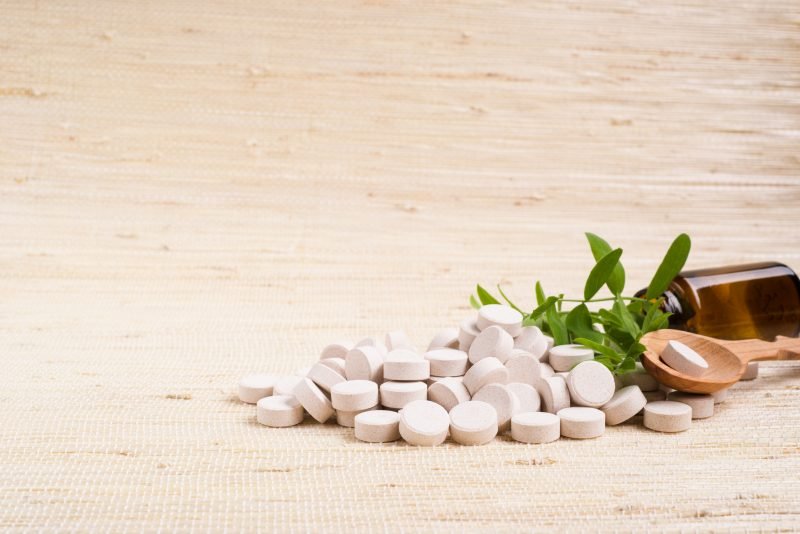Written by Sadie Wirthlin
All women experience the hormonal decline that is menopause, but the effects are usually treated with prescription medications. Medications are helpful in most cases, but some women are concerned about the effects long-term use of drugs, even prescription drugs, can have on their bodies. Instead, recent research has revealed more natural ways to reduce menopausal symptoms.
Dr. Taulant Muka, a researcher at Erasmus University Medical Center and lead author of the study, tested the plant-based supplement on women experiencing menopause. The results showed that hot flashes and vaginal dryness were significantly reduced thanks to phytoestrogens, estrogen-like compounds found in plants.
Menopause can be unpleasant, but symptoms like hot flashes and night sweats have been shown to increase your risk of heart disease, stroke, and cardiovascular disease. It’s important to address these symptoms, Muka says, and it’s better for you to deal with them in natural ways than by taking medications. Hormone therapy prescriptions such as pills, patches, and gels are most commonly used to treat menopause, but such treatments are associated with an increased risk of breast and uterine cancer.
In a study of more than 1 million women ages 50 to 64, the use of hormone replacement therapy resulted in more than 9,364 reported breast cancer cases and 637 breast cancer deaths.
With statistics like these, Muka and his colleagues wanted to know if plant-based treatments really work as an alternative to menopausal medications. Their study included more than 6,000 women, each of whom participated in traditional, natural, or Chinese medicine, including soy, ginseng, and black cohosh. Night sweats continued, but the phytoestrogens treated general vaginal dryness and reduced hot flashes by an average of 1.31 per day. These are encouraging findings, but are these natural remedies effective enough?
The FDA requires menopausal treatment to reduce hot flashes at least two times per day. But even if Muka’s plant-based treatment meets that requirement, the FDA does not review or regulate natural supplements of any kind. In addition to this, Muka says his study did not include long-term follow-up, so it is not possible to define the long-term effects that phytoestrogens may have. Joanne V. Pinkerton, Ph.D., executive director of the North American Menopause Society, also points out that the study does not differentiate between women who have a few hot flashes and those who don’t. Because symptoms vary from woman to woman, this distinction plays a large role in the overall effectiveness of phytoestrogens.
Pinkerton recommends caution when using prescription drugs or natural supplements to treat menopause over a long period of time, as they can pose risks. With more than 50% of women taking herbal medicine for menopausal symptoms, there appears to be a movement towards the “natural” direction. Different symptoms can lead to different treatments, so be sure to talk to your doctor about menopause when deciding which treatment is best for you.
Source: Chinese herbal medicine improves early menopausal symptoms. Susan Scutti. June 21, 2016. www.cnn.com

